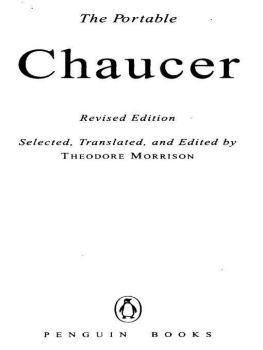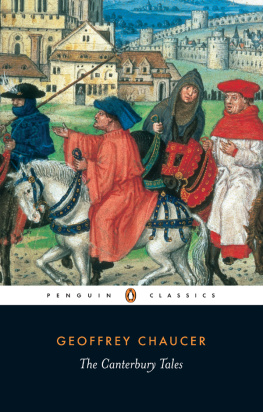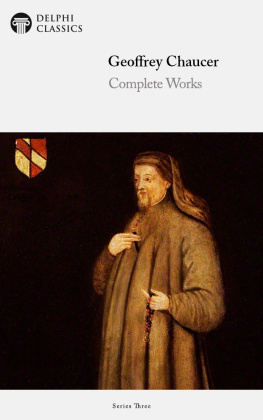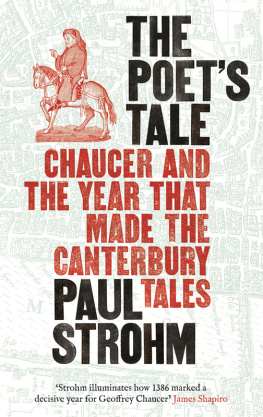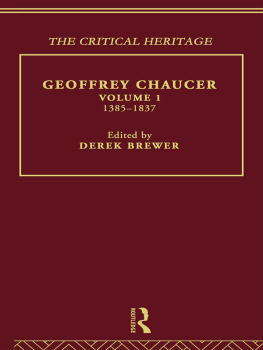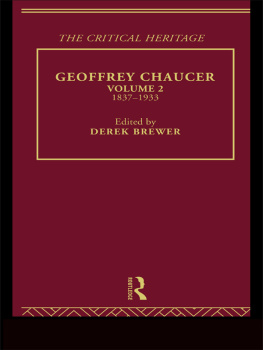Geoffrey Chaucer - Canterbury Tales (Barnes & Noble Classics Series)
Here you can read online Geoffrey Chaucer - Canterbury Tales (Barnes & Noble Classics Series) full text of the book (entire story) in english for free. Download pdf and epub, get meaning, cover and reviews about this ebook. publisher: Barnes & Noble, genre: Detective and thriller. Description of the work, (preface) as well as reviews are available. Best literature library LitArk.com created for fans of good reading and offers a wide selection of genres:
Romance novel
Science fiction
Adventure
Detective
Science
History
Home and family
Prose
Art
Politics
Computer
Non-fiction
Religion
Business
Children
Humor
Choose a favorite category and find really read worthwhile books. Enjoy immersion in the world of imagination, feel the emotions of the characters or learn something new for yourself, make an fascinating discovery.

- Book:Canterbury Tales (Barnes & Noble Classics Series)
- Author:
- Publisher:Barnes & Noble
- Genre:
- Rating:5 / 5
- Favourites:Add to favourites
- Your mark:
- 100
- 1
- 2
- 3
- 4
- 5
Canterbury Tales (Barnes & Noble Classics Series): summary, description and annotation
We offer to read an annotation, description, summary or preface (depends on what the author of the book "Canterbury Tales (Barnes & Noble Classics Series)" wrote himself). If you haven't found the necessary information about the book — write in the comments, we will try to find it.
Geoffrey Chaucer: author's other books
Who wrote Canterbury Tales (Barnes & Noble Classics Series)? Find out the surname, the name of the author of the book and a list of all author's works by series.
Canterbury Tales (Barnes & Noble Classics Series) — read online for free the complete book (whole text) full work
Below is the text of the book, divided by pages. System saving the place of the last page read, allows you to conveniently read the book "Canterbury Tales (Barnes & Noble Classics Series)" online for free, without having to search again every time where you left off. Put a bookmark, and you can go to the page where you finished reading at any time.
Font size:
Interval:
Bookmark:
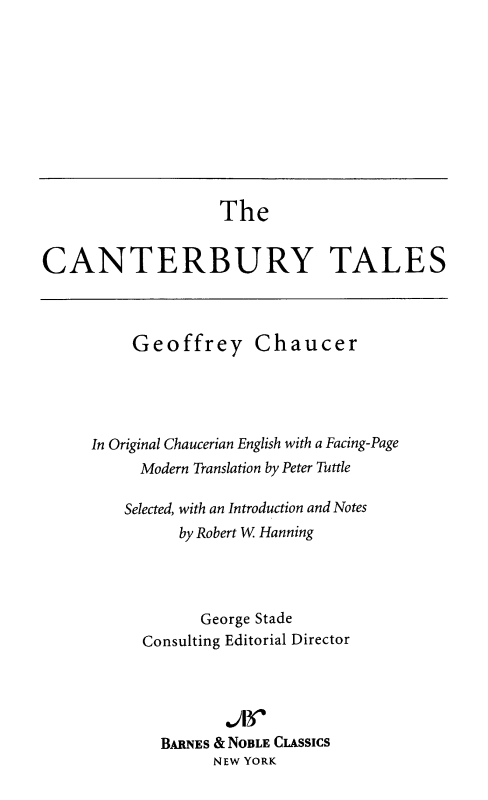
The Canterbury Tales
The Canterbury Tales
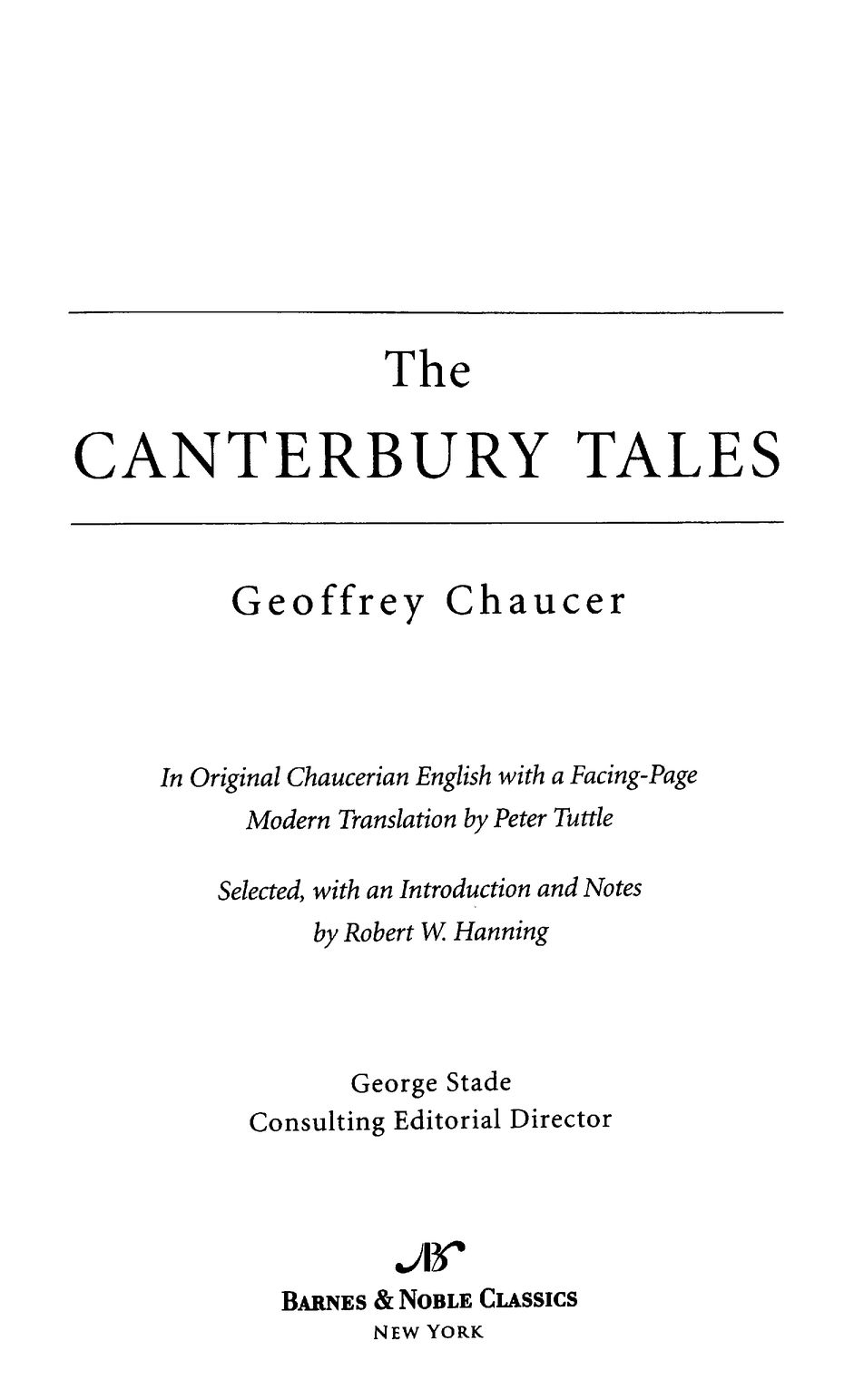
| 1340- 1345 | Geoffrey Chaucer is born in London, the son of John Chaucer, a prominent wine importer, and his wife, Agnes. |
| 1346 | The English triumph at Crecy, one of many bloody battles fought between England and France during the Hundred Years War. |
| 1348 1349 | The Black Death (the plague) sweeps through England, reportedly killing one-third of the population. |
| 1349 1351 | Giovanni Boccaccio writes the Decameron. |
| 1356 | The English are victorious at the battle of Poitiers; Edward III captures the French king, John II. |
| 1357 | The first known mention of Chaucer is a record of a pur chase of clothing, possibly suggesting he was a page in the household of Elizabeth, countess of Ulster and wife of Li onel, the second son of Edward III. |
| 1359 - 1360 | Chaucer serves in the English army and travels to the battle fields of France with Edward III and his sons, including the eldest, known as the Black Prince. |
| 1360 | Chaucer is captured by the French and held for ransom until he is released for the sum of 16; Edward III provides the sum. With the Treaty of Brtigny, England establishes peace with France that will last nine years. |
| 1361- 1362 | The plague returns, again devastating the population. Wages for laborers increase, as there are more jobs available than workers to perform them. The use of English in courts of law is formalized. |
| 1366 | Chaucer marries Philippa Roet. His father dies. |
| 1367 | Chaucer is given a lifetime annuity of 20 per year by Ed ward III. Chaucer will serve the royal household in various capacities until his death. His son, Thomas, is born. Richard II, the son of the Black Prince, is born. |
| c.1367 - 1370 | William Langlands Piers Plowman appears. |
| 1368 | Chaucer travels overseas on royal missions, perhaps to France or Italy. |
| 1369- 1372 | Chaucer writes The Book of the Duchess, an elegy for Blanche of Lancaster, who died in 1368. Edward IIIs wife, Queen Philippa, dies. A third major plague spreads throughout England. |
| 1370 | John Lydgate, a writer remembered as an imitator of Chaucer, is born. |
| 1371 | John of Gaunt, another son of Edward III and Blanche of Lancasters widower, marries Constance of Castile. Philippa Chaucer serves in their household. |
Font size:
Interval:
Bookmark:
Similar books «Canterbury Tales (Barnes & Noble Classics Series)»
Look at similar books to Canterbury Tales (Barnes & Noble Classics Series). We have selected literature similar in name and meaning in the hope of providing readers with more options to find new, interesting, not yet read works.
Discussion, reviews of the book Canterbury Tales (Barnes & Noble Classics Series) and just readers' own opinions. Leave your comments, write what you think about the work, its meaning or the main characters. Specify what exactly you liked and what you didn't like, and why you think so.

